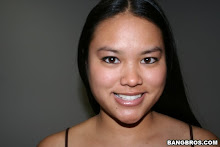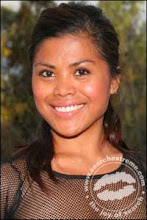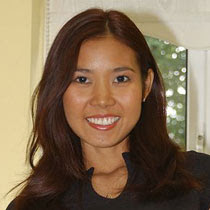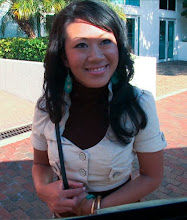When my wife and I go to Taipei we don't do touristy things when we go to Taipei: we don't visit parks or museums or historical landmarks or Taipei 101. We just go to the hotel and then go shopping in the evening. This weekend I went top Taipei to attend the Eighteenth International Symposium on English Teaching.
My wife and I were sick this past week so we weren't sure if we were going to go at all. Then once we got better we still had to wait for my monthly pay to be deposited into my bank account so we would have enough money for the bus, taxis, a hotel room, food and new whatever stuff Imelda was planning to buy.
I got paid Friday morning so we left Friday afternoon. It took over four hours to get to Taipei by bus because the traffic was bad. We then checked into a cheap hotel near the bus station but the bed was too small for the three of us (me, my wife and Ian) so I paid for a second room, which was fine because that meant I was able to watch local Taiwanese TV and my wife was able to watch HBO.
I attended a few talks in the morning. The first two talks I attended delt with matters of giving speeches (using persuasive speech and providing students with appropriate topics to choose from). The next two talks delt with corpora, specifically using corpora in the classroom and using evidence from corpora to determine how people learn languages. (Apparently we associate the word "bark" with the word "dog" but not with the word "cat" so that the sentence "The cat barked" would give us pause even though it is not grammatically incorrect: the author claimed that this is a generalisation of how we notice errors, ie by noticing when two things don't go together.)
I also got a chance to speak about fuzzy logic. Engineers use fuzzy logic when they design heaters and air conditioners: they know that the words "hot" and "cold" can't be defined by a single temperature but by a range of temperatures and they often explain this by pointing out that the words "tall" and "short" are not clearly defined either. I made the argument that the words "usually" and "sometimes" and "many" and "few" and "probably" and "possibly" are all similarly fuzzy and that we need to recognize this when we explain to students the meaning of these words. Even native speakers get confused by the meaning of the word "few": if "few" means "between three and five" then what do we mean when we say "There are only a few buffalo living today in North America"?
I also attended a few talks in the afternoon, starting with Stephen Krashen's talk about USSR (Uninterupted Sustained Silent Reading). He claimed that a few minutes a day of USSR during class helped students. Of course, a well motivated teacher with well motivated students is always going to have better results so if the teachers and students both knew they were part of a study then I would be very surprised if they didn't get positive results. I suggested to Krashen that too much of anything (such as testing or gramming instruction) is a bad thing and that we needed to find what worked for our students. He said "That's why we do research". Of course, I clearly said that we needed to find what worked for OUR students but I guess he doesn't have students and can't relate to that.
The talk that followed was much better because, like the corpus discussions in the morning, the claims made were supported by hard evidence, something that is difficult to find in the humanities. I'm actually gratified that people are now doing corpus research and not simply trying to defend their unsupported opinions over and over as it will, in te long run, provide some much needed credibility for the field. I'm thinking, in particular, of a talk that someone from TOEIC gave at Chungtai a couple of months ago: he claimed that most communication in English was done between non-native speakers. Whether this is true or not -and it obviously isn't- it wasn't supported by the reference he cited because I found out yesterday that the reference he cited showed that most international travel was done by non-English speaking people travelling to non-English speaking countries. I made the point today that Japanese tourists travelling overseas are very much unlikely to be using English when they travel overseas and will instead seek out the services of a bilingual tour guide. So there you have it: a prime example of where an unsupported opinion can hurt one's credibility.
The last talk I attended was by Jeremy Sykes. I remember he gave a similar talk at Chungtai back in May. I also remember that talk being more interesting than this one, partly because that talk used more multi-media (he had pictures and a video last time) and partly, probably, because I had already heard much of what he had to say before. He made the distinction between Academic English and EOP (English for Ordinary Purposes) and said that most students needed to study EOP. In the previous talk I attended, however, the speaker made the point that critical thinking was important and that students needed to learn how to "analyze a text, reflect on it, form an opinion and try to persude others" and I asked him if he thought these were useful skills for students to learn (as that's really all we are teaching in Academic English classes). He seemed upset. I didn't bother to point out that fluency is meaningless unless a speaker can make himself understood. (He argued that fluency is more important than accuracy and that students should focus on fluency first.) I tell students the exact opposite: I find that when students try to talk to quickly I can't understand them and I tell them that they need to slow down, speak accurately (ie with proper grammar and pronunciation) so I can understand them and only worry about fluency when speaking comes more naturally. To me that's just common sense so I didn't even bother to bring it up.
Anyway, I'm glad I went. Imelda even says we should go back next month so she can do some more shopping. Me, I'd like to go back so I can watch some more local TV: we don't have cable TV here where we live; instead we have a satellite dish that picks up signals from the Philippines. I was really excited last night because I was able to see the latest episode of a Cyndi Wang drama - all two hours of it! I was so, so happy to see that she was still active in the entertainment industry and hadn't disappeared altogether. I was a little upset when a new album by Cynthia Wang came out recently and then yesterday evening on MTV a girl introduced herself by saying "Hi, I'm Cindy" and I said "NO, you're not" and she said "Cindy Yuan" and I said "Okay but you're not MY Cyndi. Where's MY Cyndi?" and then there she was for a good couple of hours. Yay!
I was also happy to see Rainie Yang, not only in a drama of her own but also in a jeans commercial. Yes, Rainie Yang was in a jeans commercial, which is surprising because she is really thin. Yet there she was and she looked great. Yum. So I guess the message to young girls is "No matter how thin you are you can find a pair of jeans small enough that can make you look like you have a great figure". Well, frankly, it's hard to argue against that logic after seeing that particular commercial. Now I want to see Cyndi and Jolin doing jeans commercials: it's the next best thing if they're not going to do porn.
Oh, one last thing: I was surprised how much Korean and Japanese content is on Taiwanese TV, especially as much of it is not dubbed but in the original language with Chinese subtitles. Korean and Japanese women look great on TV, much better than Korean and Japanese women on the streets of Korea and Japan. To be fair, Taiwanese women look better on TV than in real life but not by much: women on Taiwanese TV look like ordinary Taiwanese women after a quick make over. Taiwanese women on TV really do fairly well represent how women in Taiwan look in real life. Yes, yes, I do love living here.
By contrast, women in the Philippines are actually better, on average, than the women you see on Philippine TV. Women in the Philippines are spectacularly beautiful but you wouldn't know it by watching Filipino TV: women on Filipino TV have much lighter skin than the average Filipina and some Philippine TV stars (eg Marion Rivera) look more Spanish than Filipino. The Filipino obsession with lighter skin tones has always been a pet peeve of mine - why should Filipinas spend so much money on skin lightening products that, in my opinion, make them less attractive (assuming they even work: my wife says that Filipino stars usually opt for skin bleaching teahniques instead of cosmetics)? It says something when I find myself enjoying Taiwanese TV much more than Filipino TV. (Mind you, it doesn't help that I don't understand anything that they say on Filipino TV and therefore can't follow any of the storylines, but if the women on Filipino TV were all spectacularly beautiful then I wouldn't mind.)
Martin
Sunday, 15 November 2009
Subscribe to:
Post Comments (Atom)





































































































































































































No comments:
Post a Comment